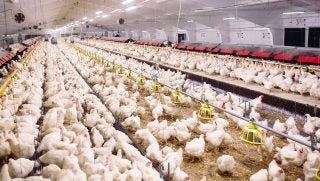The American Farm Bureau Federation joined a broad coalition of other farm and business groups to file a brief in support of 13 states challenging the EPA’s 2015 “Waters of the United States” (WOTUS) rule before a federal district court in North Dakota. The brief explains how EPA repeatedly broke the law in writing a rule that would vastly expand its Clean Water Act regulatory authority to cover small and isolated land and water features.
According to the brief, the 2015 rule “reads the term navigable out of the [Clean Water Act] and asserts jurisdiction over remote and isolated features that bear no meaningful relationship to ‘navigable waters.’” The coalition also argues that the rule is unconstitutionally vague because it “gives malleable discretion to bureaucrats to determine which land features are jurisdictional ‘waters’ and which are not.”
This is one of several lawsuits in federal district courts challenging the 2015 WOTUS rule. Most of these lawsuits, including the North Dakota case, were delayed while the Sixth Circuit Court of Appeals and then the U.S. Supreme Court considered whether the court of appeals or the district courts have the power to hear the suits. That issue was resolved in favor of the district courts in early 2018, and the North Dakota case was the first to resume.
The North Dakota court previously issued an order blocking implementation of the 2015 rule in the 13 states involved in the case. The Sixth Circuit also granted a nationwide stay of the rule, but that stay was lifted after the court was found to lack jurisdiction. Meanwhile, EPA has issued a separate new rule delaying application of the 2015 rule while the agency reconsiders the proper scope of “waters of the United States.” Unless and until the agency permanently repeals the 2015 rule, state and private litigants will continue to pursue judicial relief invalidating the rule.


